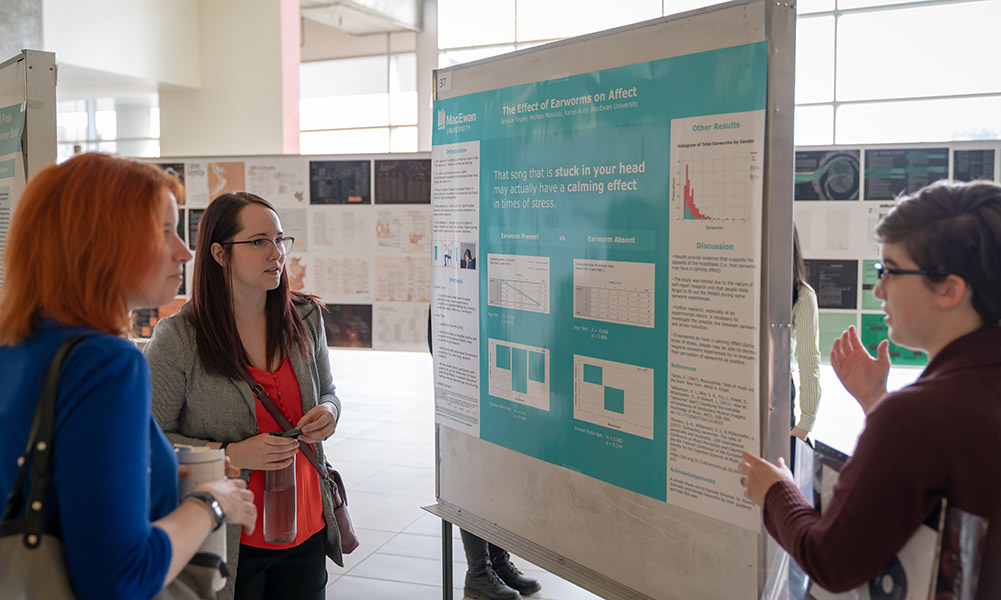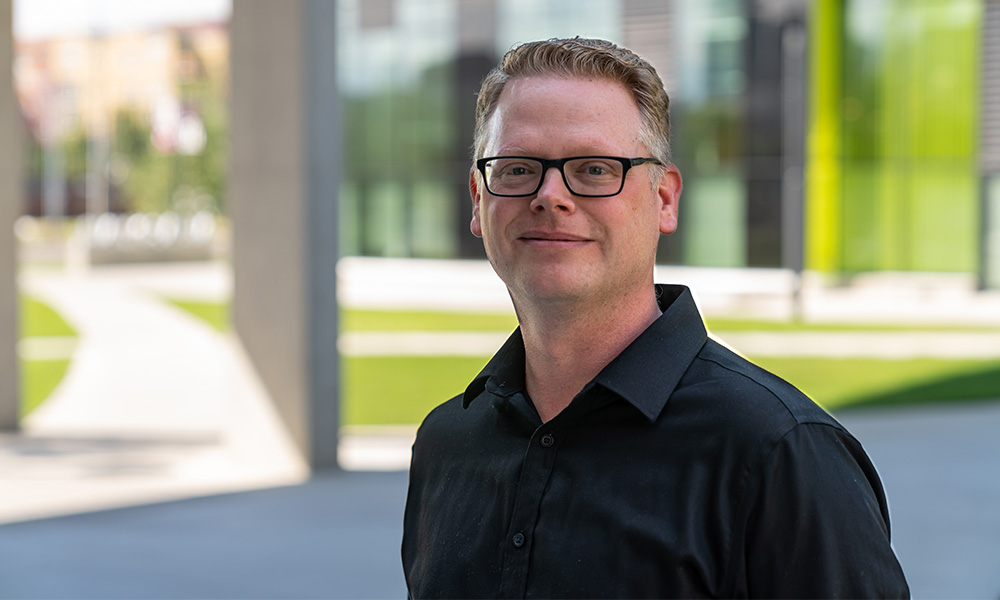When he was younger, Ryan Verbitsky suffered three concussions while playing sports, one of which required vision therapy to address issues he experienced with concentration.
“I knew there was something wrong, but I was too young to understand exactly what was happening or why,” says the Psychology student in the Bachelor of Science program. “I think that’s why learning about brain recovery, function and connectivity in PSYC 377 resonated with me. I began to see how what we were learning was connected to research that could ultimately help people, and it made me appreciate even more that someone had been able to help me when I was younger.”
In that course on human neuropsychology with Dr. Christopher Striemer, Verbitsky wrote a paper about spatial neglect – a disorder in which a stroke on one side of the brain causes a patient to be unable to attend to things on the opposite side. For example, a patient with a lesion to the right side of their brain might eat food from the right, but not the left half of their plate. The same topic was the focus of an independent study Verbitsky presented at Student Research Day on April 21.
 See all events
See all events
Together with Dr. Striemer, Verbitsky looked at how injuries to the cerebellum (an ancient part of the brain typically associated with motor control and coordination) might be connected to issues processing visuospatial information. Specifically, they were interested in whether damage to the cerebellum could also lead to symptoms of spatial neglect.
Using patient neurological databases shared by Dr. Striemer’s research partners, Dr. Sean Dukelow at the University of Calgary and Dr. James Danckert at the University of Waterloo, Under Dr. Striemer’s supervision, Verbitsky compiled a group of 25 cerebellar stroke patients. He identified exactly where the patients’ lesions were in the cerebellum using CT and MRI scans from those databases. Then, Dr. Britt Anderson from the University of Waterloo conducted a lesion overlay, allowing Verbitsky and Dr. Striemer to see images of multiple patients’ cerebellums simultaneously to determine which regions of the damaged cerebellum had the greatest overlap. The goal? To see if there was a link between the overlapping damaged areas and symptoms of spatial neglect in their patients.
Looking at those lesion overlay images was when Verbitsky realized that neuroscience research was what he wanted to do with his future. He hopes to pursue a master’s degree in neuroscience focusing on stroke rehabilitation.
“Seeing images of the brain in that way for the first time was truly amazing and almost mind-boggling,” he says.
Overall, Verbitsky’s results suggest that damage to the left lateral cerebellum can result in neglect-like symptoms that indicate dysfunction to the network on the right side of the brain that is responsible for spatial processing and attention, the so-called “fronto-parietal attention network.”
Verbitsky says he’s excited to be able to contribute to the body of knowledge on spatial attention.
“There is a limited amount of literature regarding higher-order cognitive functions like spatial attention and the cerebellum's influence on these functions, so our findings will strengthen what is known and might help further work that other researchers are doing.”
 FULL STORY
FULL STORY
